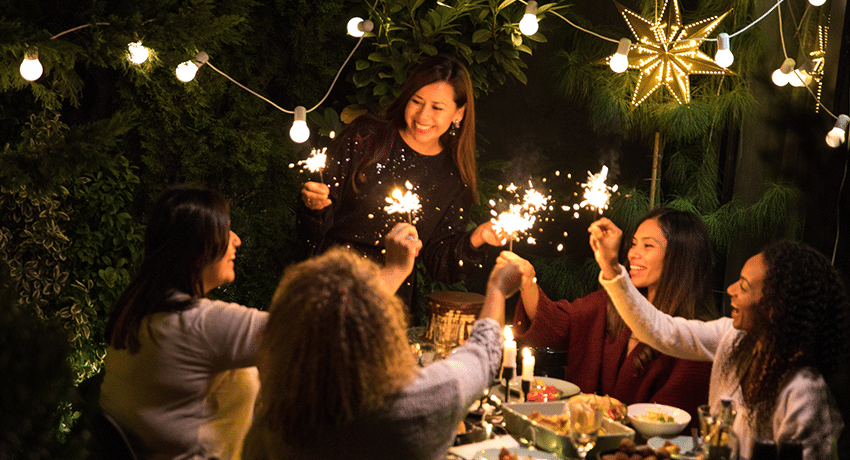
Holidays are often celebrated with family, friends, or coworkers in a festive atmosphere. However, for those with social anxiety disorder, it can be unbearable and disabling. Those who are affected by this social phobia experience this every day. With celebrations just around the corner, it can be even tougher. Andrea Taylor, PhD, a licensed clinical psychologist with UT Physicians, shares her expertise on how you can prepare for social gatherings.
1 – Change the way you think
How you think about a situation affects how you behave. This cognitive behavioral therapy method changes your perception from a worst-case scenario to one that is not as bad as the anxiety makes it feel, and that can relieve some worry. Focus on yourself and less on how others react. Taylor notes to avoid trying to read other people’s minds which can impact how we behave in social situations.
“The idea of being negatively evaluated due to a fear of not saying or doing the right thing, can cause intense worry and self-focus instead of focusing on the activity or conversation,” said Taylor, who is an assistant professor in the Louis A. Faillace, MD, Department of Psychiatry and Behavioral Sciences at McGovern Medical School at UTHealth Houston. “As it turns out, this is often one’s own perception, rather than the reality of what’s being thought by their peers.”
2 – Plan your talking points
Social gatherings are a great way for people to become better acquainted. Having conversation starters preplanned, like your hobbies or travel plans, can help you get through a chat without appearing too nervous or standoffish.
3 – Be inquisitive and complimentary
Asking questions and sharing kind words about others are sure ways to take the attention off of yourself. “Speaking to a fellow guest about the event atmosphere or their outfit can be a good first step in easing tension before making a new acquaintance,” Taylor said. Complimenting their attitude, appearance, pets, or something in their home can have a positive effect on others and you and could relieve some stress.
4 – Volunteer to help the host
At larger gatherings, offering to assist the host can help you manage your anxiety by keeping your hands and mind busy. In addition to helping you avoid awkward conversations, it’s a great way to boost your self-esteem and give you a sense of purpose. You can contribute and still enjoy the party in smaller increments that are easier to handle.
5 – Bring a friend
Inviting a friend who understands your social anxiety can help relieve the tension and take the attention off of you. Your friend can help steer conversations and serve as a diversion when needed. “Your friend is your sidekick and there to help you. If things get too tense, your friend can give you a breather before you jump back in to chat again with others,” said Taylor.
6 – Avoid overconsuming alcohol
Many people have the perception that alcohol can “loosen” you up. In reality, you just risk losing control of your behavior. Alcohol can sometimes trigger panic attacks for people who are affected by anxiety disorders, so it’s best to drink in moderation.
“Alcohol can be a very slippery slope. Set a limit for yourself if you do have alcohol. If you want something to do with your hands, remember you can drink something besides alcohol or have a snack. It is better to be in control of what you are saying than to have regrets about an alcohol-fueled conversation,” said Taylor. “Overall, know that you can talk and interact in social situations even while anxious. Plus, the more you practice and do it, the easier it gets!”
Taylor said that learning to cope and overcome social discomfort is achievable but it takes practice.


